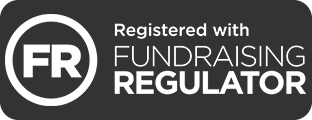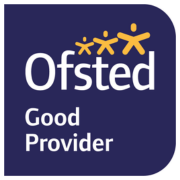FIVE FACTORS TO CONSIDER BEFORE COMMITTING TO DISTANCE LEARNING
Posted on 16 March 2017 by Rachel Gurnett
Marine Society College has years of experience delivering learning at sea and have a unique understanding of some of the challenges involved. If you’re thinking of sitting a GCSE or an A Level but don’t know where to begin, ask yourself these 5 questions to get in the right mind-set to start your studying journey.

WHY AM I DOING THIS COURSE?
You might be thinking of taking a particular course because you need it for a promotion, development in your current role or preparation for further study. Make sure that the course fits what you need to achieve. It’s not unusual for our learners to have been out of the studying game for a few years. If you are studying for your own personal development, make sure it’s something you are genuinely interested in. This can help you to get in the right frame of mind to study. It can be hard to knuckle down to a few hours of studying a week when you haven’t for a while – especially if you are working at the same time!
WHAT QUALIFICATIONS DO I ALREADY HAVE?
Maths and English at GCSE are key; Higher Education courses require English and mathematics at grade C or higher. You might want to consider getting these qualifications before you go any further. In order to take a GCSE, we ask for functional skills level 1, or lower GCSE grades, D-G. To take an A level, you will need 5 GCSEs grades A*-C including Maths and English. This is to make sure that you have the necessary skills to take on the study level relevant to your course. Some A Level courses will need specific qualifications, perhaps at a certain grade so check with us before you apply. We want you to take the right course, fit for your purpose and goals. If in doubt, ask us!
HOW MUCH SPARE TIME DO I HAVE?
A Levels will typically take about ten hours of study a week for two years. A GCSE will take six hours a week for about a year. Some people will work at a faster pace and of course, this may vary throughout your studies. It’s definitely worth thinking about whether you will be able to dedicate this amount of time. Don’t overstretch yourself – this will not help you succeed!
HOW LONG IS THE COURSE?
On average, a GCSE will take a year and an A Level will take two years. At Marine Society College, each course has a set number of assignments that are marked by your tutor to help you track your progress. They will provide individual feedback so you can work effectively through the material, checking your understanding as you go. Keep this in mind alongside your target exam date when planning how often you need to hand in assignments. We will support you through this, along with your tutor.
WHEN ARE THE EXAMS?
At Marine Society College we use AQA and EDEXCEL to award qualifications and they set the dates for exams. Your exams will mark the end of your course so you need to make sure you have these dates in mind. All course exams are available to take during the summer exam series in May/June each year. Most IGCSE (International GCSE, equivalent to GCSE) exams are held in January. Check if your course is available at this time – as some can only be taken in Summer.
Some courses come with an expiry date. This means there will be a final opportunity to take them. Course providers will remind you of deadline, but keep an eye on when you will need to complete your course.
DON’T MISS THE DEADLINE!

Although start dates are flexible, we have deadlines set by the exam boards for examination entry. Below are the final dates that we can enrol you for courses this year – this includes completing our application process (allow up to a month for this).
- A Level – 13 October 2017
- AS Level – 27 October 2017
- I/GCSE – 17 November 2017
ANY QUESTIONS? ASK US…
Taking on a distance learning course can be daunting, but we are here to help. If you have any questions at all about taking a qualification while working at sea get in touch with us through our website, by email, or over the phone on 020 7654 7050





